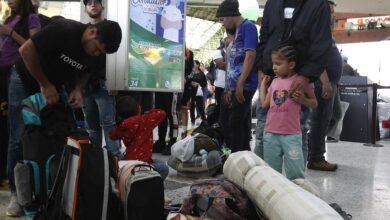UN refugee agency shared Rohingya data with Myanmar without consent: HRW

Dhaka, June 15 (EFE).- Human Rights Watch Tuesday accused the United Nations refugee agency of sharing the data of Rohingyas without their informed consent and exposing them to risk.
In a report, the rights group said the UN High Commissioner for Refugees had shared the personal information of Rohingyas with Bangladesh, which shared it with Myanmar to verify their credentials for possible repatriation.
“The UN agency’s data collection practices with Rohingya in Bangladesh were contrary to its own policies and exposed refugees to further risk,” Lama Fakih, the crisis and conflict director at HRW, said in a statement.
“UNHCR should only allow data that it collects to be shared with countries of origin when it has properly obtained free and informed consent from participants,” she added.
Around 738,000 Rohingyas live in Bangladesh since a campaign of persecution and violence launched by the Myanmar military in August 2017.
The UN has termed the persecution as ethnic cleansing and possible genocide of the minority community.
Since 2018, the UNHCR has registered hundreds of thousands of Rohingya refugees in Bangladeshi camps.
Dhaka has issued them identity cards for accessing essential aid and services.
Bangladesh subsequently used the information, including analog photographs, thumbprint images, and other biographic data, to submit refugee details to the Myanmar government for possible repatriation.
HRW said it interviewed 24 Rohingyas between September 2020 and March 2021 about their registration experiences with UNHCR in Cox’s Bazar district.
The rights watchdog also spoke to 20 aid workers, analysts, local activists, journalists, and lawyers, who had observed or participated in the registration process.
All but one of the refugees told the nonprofit that the UNHCR staff had said their registration was required to procure the smart cards to access aid.
The UNHCR did not tell them that the data could be shared with Myanmar or linked to repatriation eligibility assessments.
On its part, the UNHCR has denied any wrongdoing or policy violations, claiming it had explained all purposes of the data gathering exercise and obtained consent.
“Each refugee family was informed of the purpose of the joint registration, which was primarily aimed at providing protection, documentation, and assistance to Rohingya refugees,” Louise Donovan, the UNHCR spokesperson in Cox’s Bazar, told EFE.
“All were asked to consent to their data being shared with partners on the ground for the purpose of receiving assistance. The exercise was used to establish Rohingya refugees’ former residence in Myanmar and right to return,” she said.
Between 2018 and 2021, the Bangladesh government sent Myanmar details of thousands of Rohingya refugees with biometric and other data for repatriation eligibility assessments.
Myanmar reportedly agreed to allow about 42,000 Rohingyas to return.
The two countries have twice tried to roll out the repatriation of the members of the mainly Muslim minority.
The attempts failed as the refugees refused to return until Myanmar guaranteed citizenship and security there.





